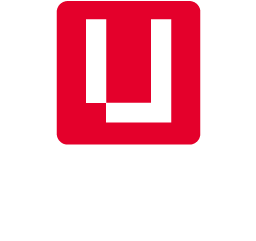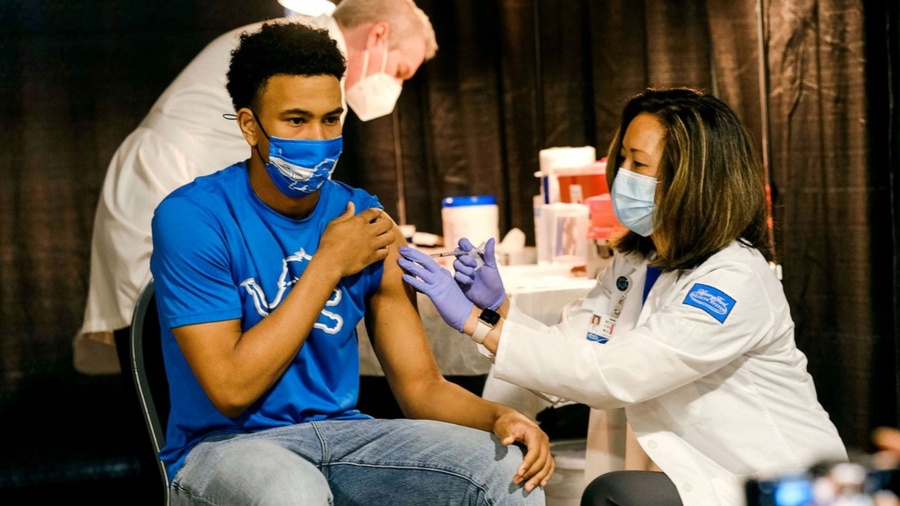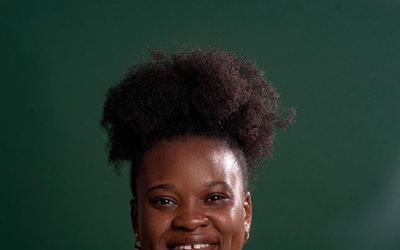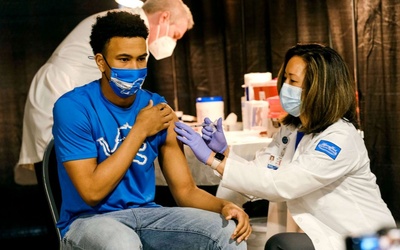While the science has revealed that young people are not among the most severe cases of COVID-19 when compared to their older counterparts, it is imperative that they contribute to the vaccination efforts to ensure herd immunity within our member states. Young people may be asymptomatic and carriers of the disease without having prior knowledge. If unvaccinated, they then run the risk of becoming severe patients of COVID-19. Further, the WHO has noted that “both traditional and social media have reported a lack of adherence to behaviours aimed at reducing the risk of transmission of COVID-19 among young people.” A recent multicountry survey reported lower adherence to COVID-19 preventative measures among young people than among older people; it also indicated that adherence to preventative behaviours decreased over time; particularly among men.” In order to develop policies to address the risky behavioural patterns of young people towards COVID-19 and their hesitancy towards vaccination, the U-Report Ambassadors have shared some thoughts on how best we can increase the vaccination rates in our member states through an approach which integrates young people at the centre of the conversation. See what our OECS U-Report Ambassadors think about our current approaches and what needs to be done.
Mr. Zachary Phillips [Antigua and Barbuda]
How do you think we must organize an educational campaign surrounding vaccination to persuade individuals to get vaccinated?
I think the educational campaign around
vaccination can benefit from focusing on how vaccinations work generally and
why not all diseases have vaccines. I think people are more trusting when the
vaccination discussion doesn't only surround COVID-19. We should empathize with
the fact that people are cautious and scared and angle the education to empower
them with knowledge rather than to convince them to take a jab.
Ms. Jeniece St. Romain: [Antigua and Barbuda]
What more do you think can be done to encourage individuals in your territory to take the jab?
A&B has achieved 60%
vaccinations at this point, which means most of the persons willing to be
vaccinated against Covid-19 already have been. I think continued concerted
efforts to educate children and teenagers in schools about the vaccine are
necessary since we now need to focus on the long term; these students will
then inevitably speak to their parents about it. Further, a catchy media
campaign with a slogan that is short and snappy, which is television or radio-based, colorful and simple to understand would be useful for ongoing
educational efforts.
Ms. Tiffany Pierre [Saint
Vincent and the Grenadines]
What are your thoughts on mandatory vaccination when you think about the individual’s right to choose what goes into their bodies?
I think the conversation
about the jab needs to be continuous, not just a one-off thing. Thus,
continuous awareness, persons speaking about their experiences, and just
educating the public are things that can be done. We need to find out what is
the hindrance, what people know, and what they do not know. After doing that,
we can plan and come up with an educational and impactful campaign based on the
answers from the questions mentioned above.
Ms. Genesis Alfred
[Saint Lucia]
What are your thoughts on mandatory vaccination when you think about the individual’s right to choose what goes into their bodies?
I believe an individual
has the right to decide whether or not they are vaccinated. It is within their
own autonomy to do so. This stance is based on personal views towards
medicines, religion and individuals’ way of life. However, despite my views on
an individual’s autonomy, I am in full support of the vaccination drive against
covid 19. I do think however that there should be incentives for persons who
take the vaccine within a given time period. Let’s Start with the primary
schools and have a district challenge where students can create projects/poems/
slogans around the COVID 19 virus and or the Vaccines for the virus. This would
not only be a fun challenge but it would help students and parents educate
themselves on the topic.
Ms. Britney McDonald
[Antigua and Barbuda]
How do you think we must organize an educational campaign surrounding vaccination to persuade individuals to get vaccinated?
To organize an educational campaign, there must be a
readiness to answer questions, provide evidence and explain in every-day terms
how the vaccine can benefit the population. This means proper training of
educators and communication personnel. To be frank, this should have been
started from the inception of the vaccine roll-out and therefore will be an
uphill battle as many have already adjusted to their lives without a vaccine
and the social and economic benefits of being vaccinated. Additionally,
geo-political issues such as vaccine equality did nothing to help compliance.
With that said, focus groups, and participatory surveys such as U -Report can
help focus on larger clusters and also provide feedback to vaccination
campaigners on realistic conversion rates and previously missed reasons for not
becoming vaccinated.
Ms. Sheriece A R
Noel [Grenada]
What are your thoughts on mandatory vaccination when you think about the individual’s right to choose what goes into their bodies?
I think that no right is absolute as has been
shown time and time again; However, a very delicate line exists between individual
rights and the rights of the collective. Mandatory vaccination should only exist in
the clearest, most incontrovertible cases so as to respect a person’s
individual right to choose. I think the information needs to be presented in
more palatable ways. Persons receive information differently and so a variety
of creative ways must be employed to reach each person. I think the creative
arts has a role to play in sensitizing persons on the safety and effectiveness
of the vaccine. I think the creative arts should be employed more heavily to
bring across the message. I also thing the message should be brief and hard-hitting and not long and cumbersome so as to turn away people from listening.
Ms. Shania Elisee [Saint
Lucia]
How do you think we must organize an educational campaign surrounding vaccination to persuade individuals to get vaccinated?
I think campaigns as well as showing people
from others perspectives how taking the vaccine can be helpful is a good way of
encouraging them to take the vaccine themselves. I think using social media is a good way
actually since most people today use it. I also think going on radios, TV
programs and things like these to make people aware of its importance is also a
good thing that can be done.
Mr. Jacqkeem George
[Saint Lucia]
What more do you think can be done to encourage individuals in your territory to take the jab?
Vaccination is one of
the most effective public health interventions in the world for saving lives
and promoting good health. Only clean water, which is considered to be a basic
human right, performs better. When vaccination rates decline, we start to see a
resurgence of infectious diseases and it is for this reason that some countries
are now choosing to make vaccination mandatory. However, the effectiveness of
this approach varies in countries which have already implemented it. Providing
at home vaccinations to those who may have difficulties getting to the
vaccination site like persons with disabilities and the elderly folk are some
ways to ensure all are vaccinated. Let us recruit prominent community members
to go into the communities with low vaccination rates to speak with individuals
and who may be hesitant about taking vaccines to educate them about the
advantages of vaccination and to encourage them to take it.
Mr. Shawayne Daniel
[Grenada]
What more do you think can be done to encourage individuals in your territory to take the jab?
Vaccination and
vaccination literacy seem to be hot topics in today’s society. With Grenada’s
vaccination rate tending to the more subpar level, people must understand the
importance of this rising phenomenon. One way to increase this vaccination rate
is by utilizing a proper educational campaign. This campaign should be geared
towards answering all questions posed by individuals and checking all boxes to
ensure no concerns with the composition of the vaccines and the entire
vaccination process. To maximize the reach of this educational campaign, a
mixture of participants bringing this information to the broader public is
essential. That being professionals in the medicinal field, government
ministers, regular civilians, the elderly and the younger generation (that is
where we come in as U-Report Ambassadors. This is where we lend our voices to
be a part of the vaccination drive).
Ms. Kalifa
Phillip [Grenada]
Question: How do you think we must organize an educational campaign surrounding vaccination to persuade individuals to get vaccinated?
I think widespread and
continuous education campaigns are necessary. I've also realized that the
choice of messenger" is a key aspect when attempting to reach the masses.
In addition, the way in which the message is delivered, can also impact the
general acceptance and retention of information among my population. I think
this campaign should start with outreach in various schools. Medical
practitioners can make school visits and tailor their talks to various age
groups. I think then organizations like NGO's should be targeted. Ongoing radio
and television campaigns should also be heavily utilized. Lastly, I think
public forums need to be held, where persons can ask their questions and are
allowed to express their reasons for hesitancy. In doing this, qualified
professionals can respond to the general public and help debunk any
misconceptions.
Ms. Jaime Young [Saint
Lucia]
How do you think we must organize an educational campaign surrounding vaccination to persuade individuals to get vaccinated?
Clearing up misinformation and myths!
I think many people don’t really understand how we got the vaccine. One of the common comments is “how was it made so quickly?” “it can’t be good because normally vaccines take years “these comments can be simply explained with education and a bit of science. We don’t necessarily need to focus on covid specifically. But perhaps start with education on the importance of vaccines, the different types, and how they come about. Having a general understanding of how it works may make it easier when we begin to explain how we came about with the covid vaccine we have now.
Additionally, there is also a fear of side effects. A strategy that can be used is to discuss the side effects of the common medications we are using to show that every drug has side effects but the benefits outweigh the risk.
---------
Therefore, any public education which needs to be done must be unique to our varying circumstances but always focused on persuasion as a chief mechanism to achieve herd immunity. The views of young people above have shown us that there are many ways to achieve herd immunity by engaging young people critically. Not too late to mask up and vax.




































































